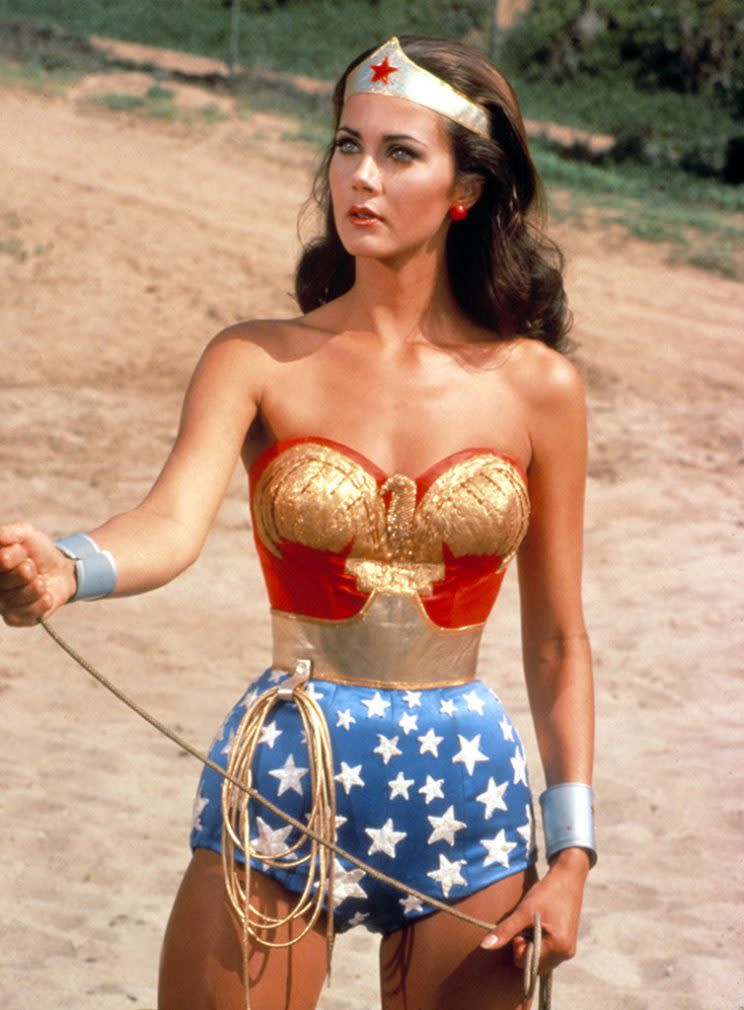Why Women Really Want to Love 'Wonder Woman'

“I really hope it’s good.” That’s the phrase I hear most often from other women when the subject of Wonder Woman comes up (along with variants like “please let this one not suck”). Regardless of whether the person I’m speaking with is a comics fan or can’t name a single Avenger, she inevitably seems invested in the success of this one superhero movie. And I get it. Female audiences have a lot riding on this film.
To understand why the character of Wonder Woman is so significant for women, you have to think back to a time when superhero films didn’t dominate the box office, cosplay wasn’t in the dictionary, and superhero comics were only for kids, nerds, and/or nerdy kids. Even when geek culture wasn’t mainstream, Wonder Woman was. A figure in the DC Comics canon since the ’40s, she was the central character of a TV series that ran for three seasons in the ’70s and longer in syndication. She was one of the Super Friends in the Saturday-morning cartoon lineup that children of the ’70s and ’80s remember and featured in the Justice League cartoons that aired in the early ’00s. For many girls growing up in the last few decades, she was the one female superhero who really counted. Sure, we had Batgirl and Supergirl, but they were obvious derivatives of male heroes. One of the Wonder Twins, Jayna, was a girl, but she was half a hero without her brother (and trust me, no boys on the playground wanted to be Zan, whose power was transforming into water). Only Wonder Woman was a household-name superheroine, a character even your grandmother had heard of, who could hold her own alongside Batman and Superman.
I remember playing superheroes as a kid, each boy picking his favorite, the girls all fighting to be Wonder Woman. I remember the white plastic headband I wore when I pretended to transform from Diana Prince, and the miscellany I picked up about Wonder Woman’s abilities (how did I know about the invisible jet? I just knew). I loved Cinderella and Princess Leia too, but Wonder Woman was special, because I didn’t have to invent special powers and storylines for her. They already existed.

That’s a lot of personal baggage to put on a movie, but I’m not the only one who will be dragging mine into the theater. Those women-only Alamo Drafthouse screenings keep selling out for a reason: Women understand what Wonder Woman means in a way that men (who still represent four-fifths of the cinematic Justice League) just can’t. And even women with no particular investment in the character are eager to finally see a female character front one of these giant superhero blockbusters.
But what does all this mean if, Goddess forbid, the movie is bad? All the previous DC Extended Universe films have done solid (though not Marvel-size) box office, despite largely negative reviews. Will a Wonder Woman movie be given the same permission to fail critically, or will the studio go into damage-control mode and immediately start trimming Gal Gadot’s Justice League scenes? And what if it’s a critical success (which so far appears to be the case), but doesn’t trump Batman v. Superman’s box office? Will director Patty Jenkins find new work as quickly as male directors of underperforming superhero films — like Fantastic Four’s Josh Trank — or will she be blamed and labeled damaged goods?
These scenarios would seem paranoid if we hadn’t seen them all before. In Hollywood, female directors don’t easily get a second chances after a flop, and gender is always to blame when a female-fronted film does poorly. Remember that as late as 2014, Marvel CEO Ike Perlmutter was shooting down proposals for female superhero films on the grounds that Elektra, Catwoman, and Supergirl flopped… nine, 10, and 30 years earlier, respectively. No doubt there are still film execs who see the push for female heroes as a fad that will pass.
It seems more hopeful than that now, though. Marvel is gearing up for Captain Marvel (co-directed by a woman, Anna Boden) in 2019 and Ant-Man and the Wasp in 2018. Sony just hired Gina Prince-Bythewood to direct its 2018 Spider-Man spin-off about the female characters Silver Sable and Black Cat. Maybe the success of the female-fronted Star Wars films have given producers courage, or the positive buzz has bolstered them, or maybe they just decided that it’s about damn time. At this moment, female superhero films seem likely to come into their own with or without Wonder Woman.
Still — it would mean a lot if it’s good. Please let it be good.
The ‘Wonder Woman’ cast on why this is a landmark movie:
Read more from Yahoo Movies:

